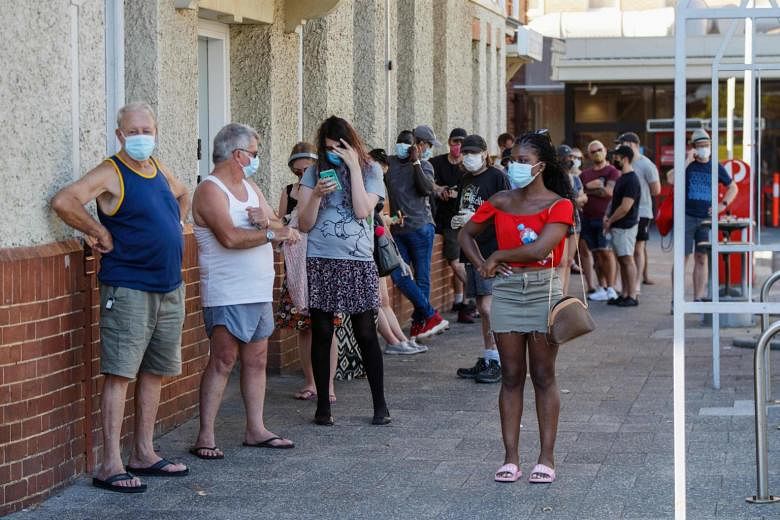SYDNEY (XINHUA) - A group of Australian researchers have delved into the reasons why many Covid-19 patients also experience heart trauma, and revealed new avenues for effective treatment.
Recent evidence suggests that roughly a quarter of patients hospitalised with severe Covid-19 sustained some form of cardiovascular injury, and up to two-thirds experienced inflammation in the heart.
A study released on Thursday (March 4) by Australia's QIMR Berghofer Medical Research Institute revealed some of the ways that the coronavirus causes this damage, and identified a class of drugs that could potentially protect against or reverse cardiac trauma.
"We thought understanding the biological basis of the heart damage was critical for identifying drugs with a much higher chance of success," said associate professor James Hudson, who heads QIMR Berghofer's Cardiac Bioengineering Research Group.
Results showed that in severe cases of Covid-19, the immune system overreacts, releasing inflammatory molecules called cytokines into the bloodstream. Dubbed a "cytokine storm", the reaction can damage a number of organs, including the heart.
On the basis of the findings, Canadian company Resverlogix has expanded a clinical trial of the drug, apabetalone in Covid-19 patients, to examine if it can treat heart damage.
To conduct the study, the team at QIMR Berghofer used thousands of lab-grown, miniature human heart organoids which they exposed to the blood of Covid-19 patients.
"We exposed the bioengineered, stem-cell-derived heart tissue to Covid-19 patient blood and found it caused dysfunction even when the virus didn't infect the tissue," Prof Hudson explained.
"We then used our mini heart organoids to screen several existing drugs that inhibit this protein and found they can prevent and reverse the damage."
One of the drugs that proved effective at blocking the inflammatory response was apabetalone, which has been a focus of clinical trials for cardiovascular disease for more than five years. As it has been studied in ongoing trials, the drug could be available to treat Covid-19 patients sooner.
The research was supported by funding from the Queensland state government, and fast-tracked by the Australian federal government's Medical Research Future Fund which helps identify potential new treatments for Covid-19.
"Professor Hudson's cardiac organoid research has been world leading, and provides a way to quickly test potential new drugs," said Queensland Health Minister Yvette D'Ath.











